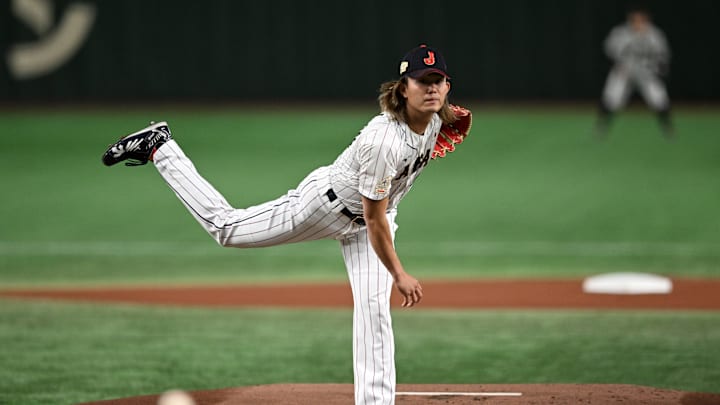It’s not money. It’s not a chance to play for the Los Angeles Dodgers. New York Mets free agent target Tatsuya Imai is coming to MLB for a different reason. His reason deserves an eyebrow raise and an applause at the end.
Tatsuya Imai on pitching in the dead ball NPB
— Yakyu Cosmopolitan (@yakyucosmo) November 11, 2025
"I didn't always dream of going to MLB. But over the past 2 or 3 years [...] I felt like there weren't many hitters who were even trying to hit a homer off me anymore. A lot of lineups would just foul pitches off and run up my pitch… pic.twitter.com/7Rw7g6GRBp
This wasn’t exactly what anyone expected. Even with careful planning with his words, challenging MLB hitters before even coming to MLB seems bold. Appearing bored with the way Japanese hitters have been playing the game against him, Imai’s claim for why he’s saying goodbye to the NPB can certainly come back to bite him every time he gives up a home run.
He must realize that. And if he was going to put this out publicly, it shows a kind of gamesmanship you can’t help but appreciate.
Mets free agent target Tatsuya Imai is ready for the challenge of facing MLB sluggers
How dead is the hitting in Japan? One player hit over 25 home runs last season. Teruaki Sato isn’t getting posted, but surely if he continues to hit about twice as many home runs as anyone else (he had 40, next highest was 23), he may have no choice.
Imai’s attitude feels unique but perhaps he’s not alone. Coming off a season where he had a 1.92 ERA in 163.2 innings, he allowed just 6 home runs. Most pitchers wouldn’t have a problem with this. For the love of the game, Imai does.
Last year’s NPB averaged 0.7 home runs per 9 innings. In comparison to MLB at 1.2, we see clear evidence. A statistical half home run more in MLB per game last year is the proof and pudding of what Imai is saying.
The technology doesn’t yet exist to know how players from MLB’s deadball era would feel about this. Would Walter Johnson accept a chance to come into free agency this winter for the opportunity to face more aggressive and powerful hitters?
Early fodder that’ll be sure to follow him wherever he goes, whether with the Mets or someone else, Imai’s messaging may also end up explaining why more Japanese stars will come to MLB if things don’t change. Chasing a new challenge seems to be the crux of what has him leaving his home country. The $150 million or so USD he’ll get offered, however, should be enough for him to feel satisfied if MLB were to deaden their balls.
